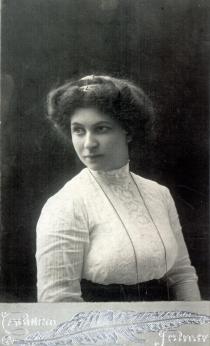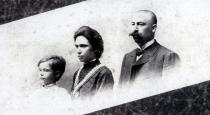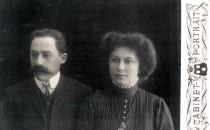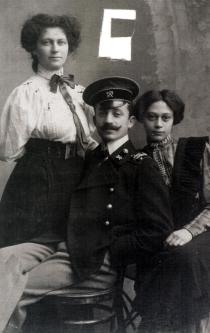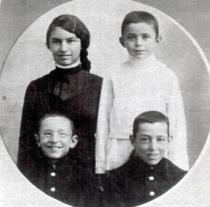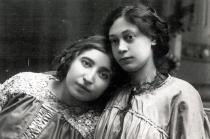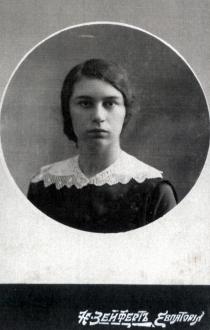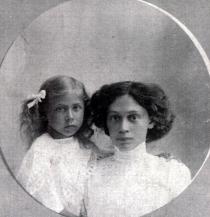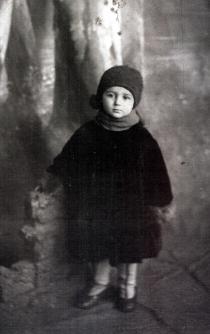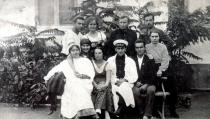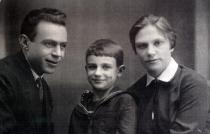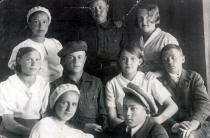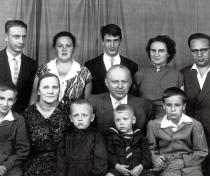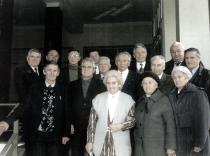I, Ninel Shwartz, Moscow, 1927, Photo made on the occasion of buying my first winter coat, photo shop in Arbat.
I was born on 11 August 1923 in Moscow. My mother told me there was no space in our room for even a little bed and I slept in a laundry basket until I turned one year old. The first years in Moscow were very difficult. Although my father worked in the Central Committee he received a small salary. Besides, my father didn't hold a high position. My mother didn't go to work for some time after I was born. However, my parents had bright memories about this period of life. It was the time of hope when they were young and full of ideas about construction of a new society expecting only good things in life. Shortly after I was born my mother entered a preparatory course at the institute of Public Economy. After finishing this course she became a student of the Institute. My parents loved each other dearly, but they never demonstrated their feelings - this wasn't decent in their circles. My father traveled a lot and my mother always missed him, but when he returned she just kissed him on his cheek asking him whether he managed to complete his task. My father was a cheerful and hot-tempered man. He grabbed me throwing me high to the ceiling tickling and kissing me.
In 1927 my father got a promotion - he began to work at the people's Commissariat (Ministry) for Labor. We received two rooms in a communal apartment in Smolenskaya Street, near Arbat in the very center of the city. There were 12 other families residing in this apartment. There was a common kitchen where each family had a table and a kerosene stove, and there was a common sink and a tap with water and a common toilet. Tenants stood in line to get to the toilet in the morning.
We got along very well and I don't remember any arguments about anything that was common for other communal apartments.
Children played together. We played 'hide and seek' running along the corridor and dropping in our neighbors' rooms. Our neighbors offered us tea and sweets. Neighbors often looked after each other's children when their parents had to go out. In 1928 my mother graduated from the Institute of Public Economy named after Plekhanov, and went to work. I went to a kindergarten not far from Arbat. We celebrated Soviet holidays with our neighbors: 1 May, 7 November and I remember the New Year of 1928. My father bought a huge Christmas tree it and my parents arranged a celebration for all children of our communal apartment in our room. There were presents under the Tree and treatments on the table: sweets and lemonade. My father disguised as Ded Moroz [Santa Claus], greeted and danced with us. We enjoyed ourselves a lot. This was the first and the last New Year celebration in my prewar childhood - the Soviet authorities cancelled Christmas tees calling them vestige of the past and apart of religious holiday.

